give a miss call on
9501105715
Helpline
Helpline
Helpline
Helpline
A hands-on, UNESCO Model Curricula inspired program that develops technical skills along with an understanding of artistic, historical and theoretical foundations of the discipline.
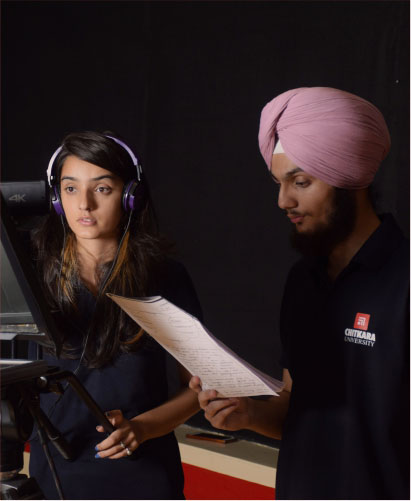
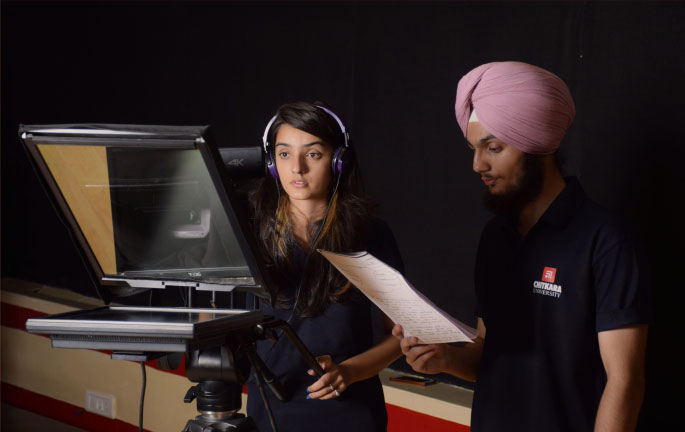
Course Duration
2 Years
Internship Opportunity
The career prospects for media professionals graduating from Chitkara University are bright.
Campus Recruitment
The program aims at transforming and nurturing individuals into seasoned professionals. Interaction with the Media Industry giants and ample Industry Exposure coupled with our state-of-the-art infrastructure will enable the students with practical hands-on training required for all-round growth of the students.
Eligibility
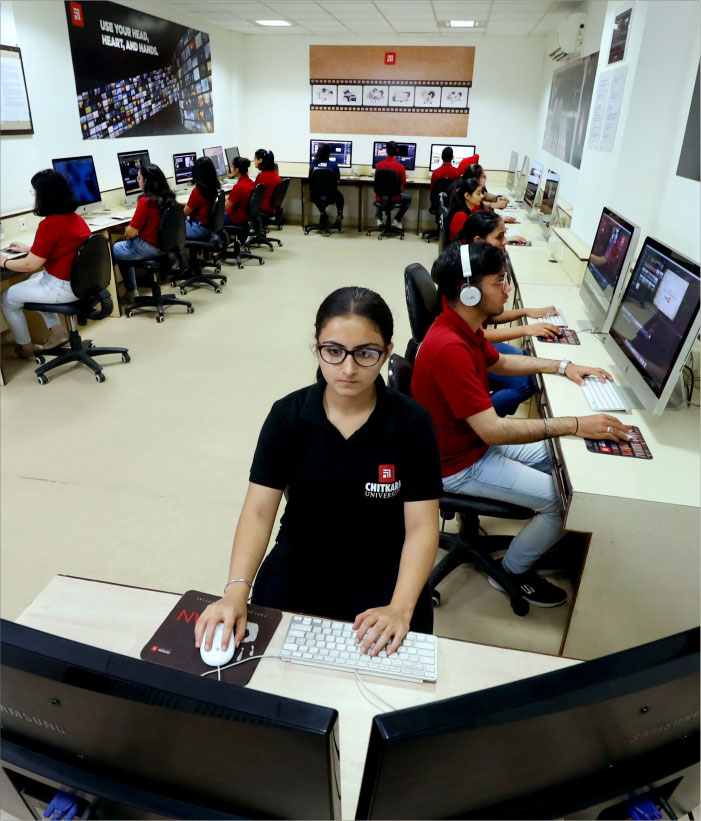
The Indian Media and Entertainment industry is one of the fastest growing industries in the country. Its various segments, Film, Television, Advertising, Print and Digital have witnessed a tremendous growth in the last few years. The industry is highly driven by strong consumption in non-metro and small cities, intense emergence of regional media and burgeoning new media businesses and formats.
Our Masters program is built on strong theoretical foundation supported by applied research into the dynamics of communication and the creative industries, together, with professional expertise.

The program delivery is tailored to meet the needs of different fields of Media. It comprises a good mix of formal lectures, seminars, computer-based learning, individual and group project work, guest lectures and industry training. The focus of the program is to nurture socially responsible media professionals, backed with the latest inputs from industry, well-trained faculty along with state-of-the-art infrastructure.


The curriculum structure for all our academic programs in Journalism have been inspired and adapted from the UNESCO Model Curricula for Journalism Education. The foundation of the curriculum is designed to promote:
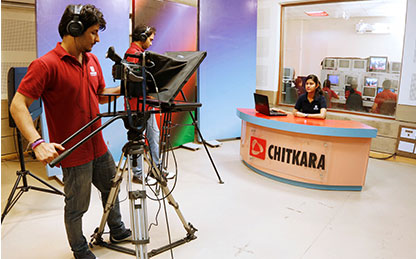

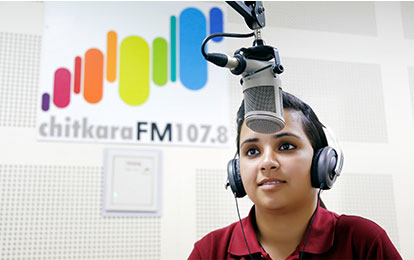

The community radio of Chitkara University can be heard on 107.8 MHz FM and is completely managed by our Media students. We have our own independent recording and broadcasting facilities which provide an excellent learning platform for all students who actually run the radio station. All these facilities make us the first choice of students among Mass Communication colleges in Punjab and Chandigarh.
We have strong links with organisations to give valuable real-world experience that will boost your employment prospects.





















Copyright ©2022 Chitkara Educational Trust |
Disclaimer | Privacy Policy |